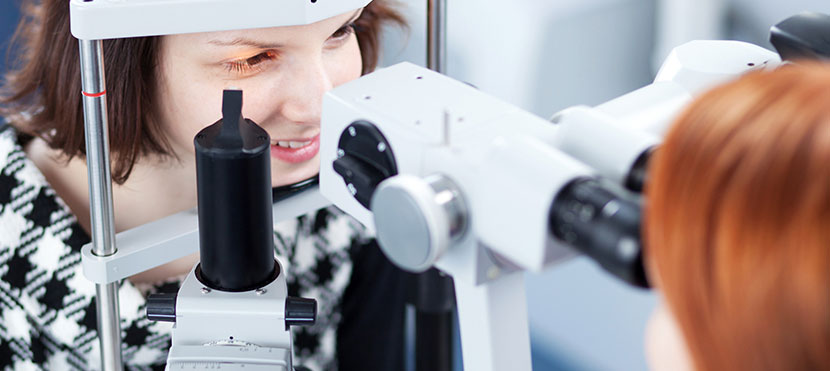
One of the major health-related issues today is Diabetes Mellitus. It is said to be a modern pandemic and has affected 422 million cases globally as per WHO 2014 statistics and more than a million UAE residents suffer from diabetes or are pre-diabetic. According to recent estimates, the majority of cases would be found in the Middle East and Asia by the year 2025.
Diabetes is a metabolic disease in which the body is not able to regulate the amount of sugar in the body. It can affect the patient’s kidneys, eyes, nerves, immunity and the heart.
Diabetic eye disease refers to a group of eye problems that people with diabetes may face as a complication of diabetes. Some of them can cause severe vision loss or even blindness.
How can Diabetes effect your eye
Eye involvement in Diabetes Mellitus can result in the predisposition of the patient to
- Recurrent Eye Lid Infections
- Sudden onset squint and double vision
- Corneal ulcer: Infection/inflammation of the cornea
- Cataract: Clouding of the eye’s lens. Cataracts develop at an earlier age in people with diabetes or patients can develop a diabetic cataract
- Glaucoma: A person with diabetes is nearly twice as likely to get glaucoma ( Disease affecting the field of vision )
- Diabetic Retinopathy: Damage to the retinal blood vessels leads to changes in the retina which can eventually cause blindness if not treated at the right time.
The most important causes of visual loss in diabetes are Diabetic retinopathy, Cataract and Glaucoma
What is Retina and why is it important?
Retina refers to a light-sensitive tissue at the back of the eye. It is important to have a healthy retina to have a good vision. Any disease affecting the retina can affect vision and decrease it.
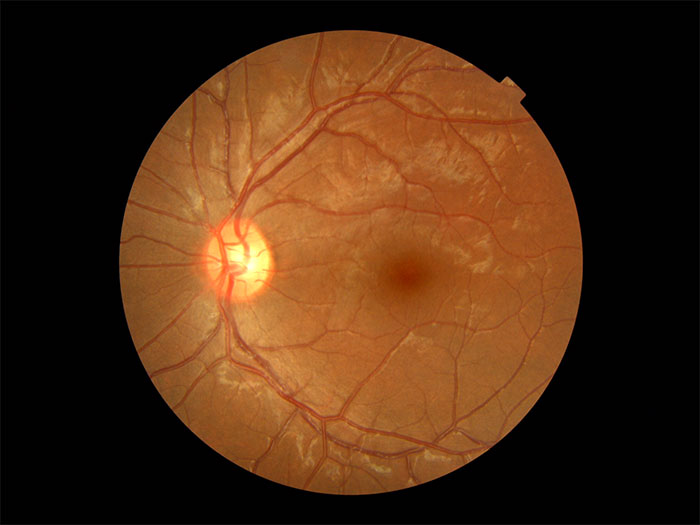
Picture 1: Normal Retina
What is Diabetic Retinopathy
Diabetic Retinopathy refers to the series of retinal changes that occur in nearly all patients with diabetes mellitus. In some people with diabetic retinopathy, blood vessels may swell and leak fluid. In other people, abnormal new blood vessels grow on the surface of the retina which can suddenly break and cause bleeding in the eye and affect vision.
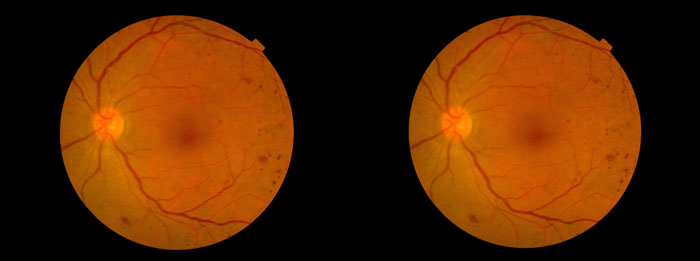
Picture 2: Early Diabetic Retinopathy
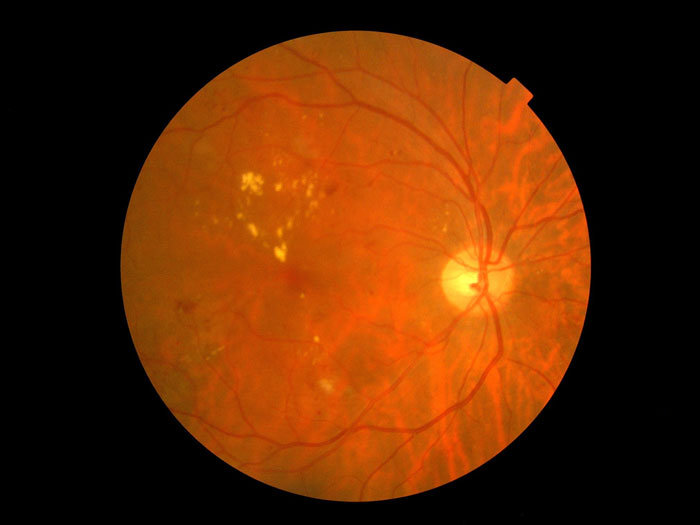
Picture 3: Diabetic Maculopathy (Centre of Retina affected)
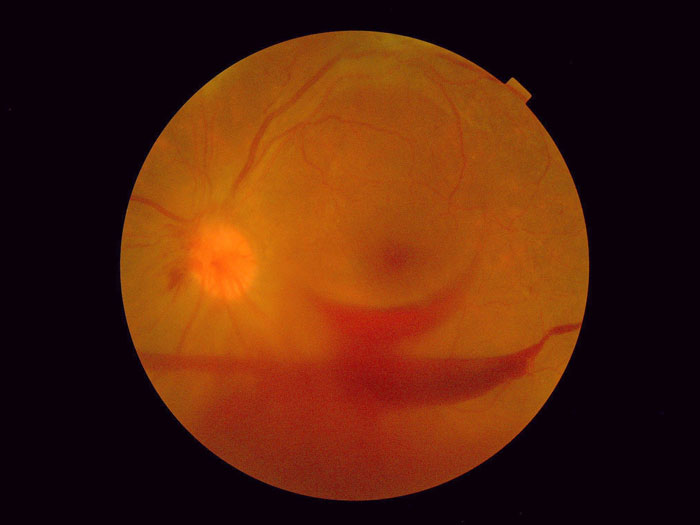
Picture 4: Advanced Diabetic Retinopathy with Bleeding
Will I notice a change in my vision if I have Diabetic Retinopathy
In the initial stages the diabetic retinopathy will not have any effect on the vision; however, as the retinopathy gets worse it will cause vision loss especially if the centre of the retina is affected or there Is bleeding inside the eye
Is Diabetic Retinopathy painful?
No, since retina does not have any pain fibres, the diabetic retinopathy does not cause any pain. This is why screening of Diabetic Retinopathy is important. However, pain may develop if complications like glaucoma develop in the late stages
What is screening for Diabetic Retinopathy
Screening means examining your eyes regularly to detect changes in eyes brought about by Diabetes.
How frequently do I need to have an eye examination?
Recommended Eye Screening Schedule for Diabetic Retinopathy
| Diabetes Type | Recommended Time of First Examination | Recommended Follow-up* |
| Type 1 | 3-5 years after diagnosis | Yearly |
| Type 2 | At the time of diagnosis | Yearly |
| Prior to pregnancy (type 1 or type 2) | Prior to the conception and early in the first trimester | No retinopathy to mild or moderate Diabetic Retinopathy: every 3–12 months
Severe Proliferative Diabetic Retinopathy or worse: every 1–3 months |
* Abnormal findings may warrant a more frequent examination
What happens during an eye examination?
- It is preferable that if you are driving, bring someone along who can drive you back home, because if your pupils are dilated for the retinal examination you may not be able to drive back home.
- The doctor will make comprehensive eye assessment including check-up of your vision, eye including intraocular pressure and retinal examination.
- He may instil some drops to dilate your pupil to have a good look at your retina.
- He might take some photographs of your retina and store it on the computer. He can use these images to compare the retinopathy in subsequent follow-up visits.
- You may experience little blurring of vision for one day. This is due to the drops that were instilled for the dilation of your pupil. You may not drive back home.
- Depending upon your diabetic retinopathy status, the doctor will advise you regarding when you have to come for a follow-up visit.
Do the Eye Drops used to have any side effects?
The drops used for the eye examinations are generally safe. If you are hypertensive or have known allergies to specific drugs, do inform the doctor. The drops may make near things blurred which will last for 6-48 hours depending upon the type of drops used. The eye care physician will inform you about it. It is not advisable to drive after you have your pupils dilated.
If I am diagnosed as having Diabetic Retinopathy, What’s next?
If you are diagnosed as having Diabetic Retinopathy, the doctor may advise you for another visit or may advice you to undergo further tests including Optical Coherence Tomography and Fluorescein Angiography. This would help him decide the future course of treatment.
What are the treatment options of Diabetic Retinopathy
Strict control of blood sugar level is very important for treating Diabetic Retinopathy. Depending upon the stage of Diabetic Retinopathy, the doctor would advice you regarding further management options including laser treatment of the retina or injecting some medicines into your eye. You will need periodic follow ups with your eye doctor for the same.
Dr. Pankaj Lamba
Specialist and Assistant Head – Ophthalmologist
Thumbay Hospital Day Care – Rolla, Sharjah
For appointments contact us through
Phone: +971 6 5440555
Email: thdaycare.shj@thumbayhospital.ae
Online: www.appointments.thumbay.net
Location: Thumbay Hospital Day Care – Rolla, Sharjah | P.O. Box 77773, Rolla – Sharjah, UAE

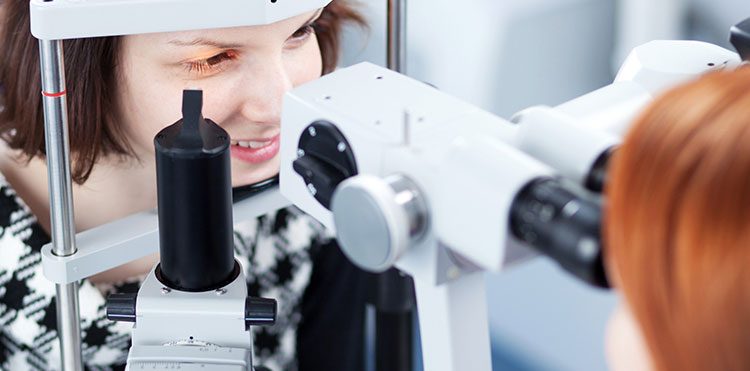
Trey
March 7, 2019Hi there! Such a great short article, thanks!